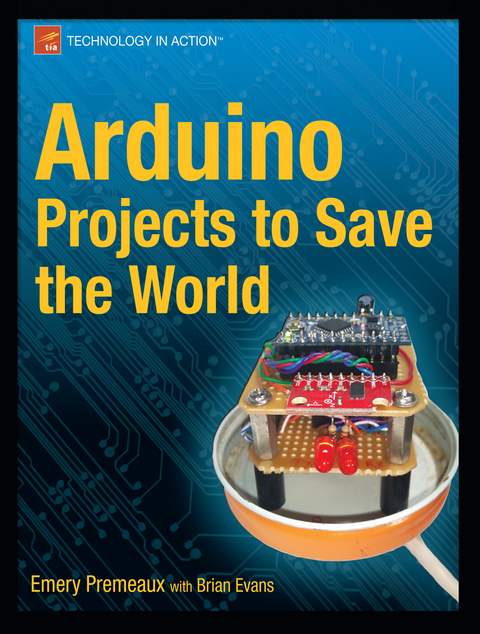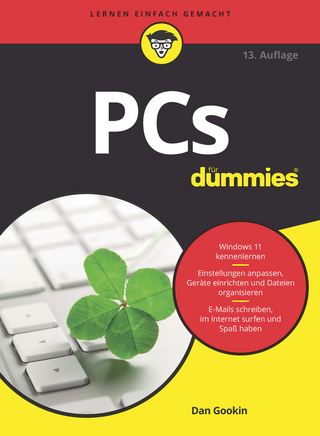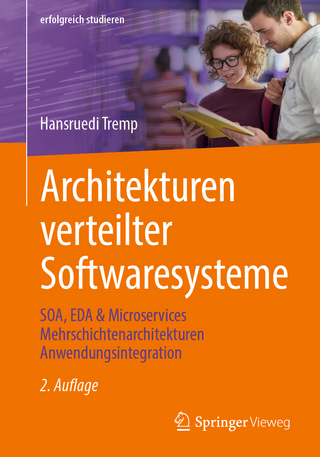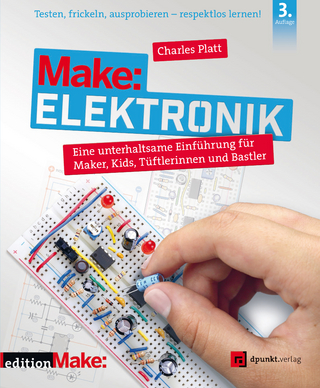
Arduino Projects to Save the World
Apress (Verlag)
978-1-4302-3623-8 (ISBN)
Arduino Projects to Save the World introduces the types of sensors needed to collect environmental data—from temperature sensors to motion sensors. You'll see projects that deal with energy sources—from building your own power strip to running your Arduino board on solar panels so you can actually proceed to build systems that help, for example, to lower your energy bills. Once you have some data, it's time to put it to good use by publishing it online as you collect it; this book shows you how.
The core of this book deals with the Arduino projects themselves:
Account for heat loss using a heat loss temperature sensor array that sends probes into every corner of your house for maximum measurement.
Monitor local seismic activity with your own seismic monitor.
Keep your Arduino devices alive in the field with a solar powered device that uses a smart, power-saving design.
Monitor your data and devices with a wireless radio device; place your sensors where you like without worrying about wires.
Keep an eye on your power consumption with a sophisticated power monitor that records its data wherever you like.
Arduino Projects to Save the World teaches the aspiring green systems expert to build environmentally-sound, home-based Arduino devices. Saving the world, one Arduino at a time.
Please note: the print version of this title is black & white; the eBook is full color.
Emery Premeaux (a.k.a. MRE ) had been raised on electronics and hamburgers. The need to dissemble mechanical and electronic devices is probably caused by a genetic disorder passed on by his father. Soldering skills definitely came before table manners. MRE spent his formative years putting model rockets into microwaves, searching for treasure with hand-wound electro-magnets, and building various Rube Goldberg contraptions to catch the monsters. An underlying theme of life in those early days was that technology was not only fascinating, but that nerdism could actually make one a hero. Goonies, Tron, and Revenge of the Nerds were huge influences. Eventually, so-called adult reality stepped in. So MRE started out on the success quest. A series of jobs left him with a diverse set of skills, including, but not limited to the following: He learned how to cheat arcade and slot machines, build and maintain incredibly complex robots that manufacture incredibly simple things, determine just what it would take to destroy a three-story, 200-ton piece of construction equipment, and answer the question Can we measure that? After 10 years and nearly as many jobs, MRE decided that somehow, having an actual degree might do some good, so he went ahead and did that. It could have done him some good, but it's just that by the time he finished his bachelor's degree in electronics engineering, he was actually ready for something completely different. MRE now lives in Japan. He teaches technical English to Japanese engineers, and normal English to normal Japanese kids. He is a founding member of Tokyo HackerSpace, where he teaches electronics, Arduino, urban gardening, leather and metalwork to anyone willing to try something new.
* Saving the World: One Sensor at a Time * Spider Temps: A Temperature Measurement Tool with Six Legs * Jungle Power: Keeping an Arduino Alive on Solar, Batteries, and Super Capacitors * Tele-sensation: Wireless Communication for Long-Distance Measurement * Contributing to the Hive Mind: Submitting Your Data to Pachube * The Mass Effect: Measuring Earthquakes with This Seismometer * Staying Current: Keeping track of your power usage
| Zusatzinfo | XVII, 256 p. |
|---|---|
| Verlagsort | Berlin |
| Sprache | englisch |
| Maße | 178 x 254 mm |
| Themenwelt | Informatik ► Weitere Themen ► Hardware |
| Technik ► Elektrotechnik / Energietechnik | |
| Schlagworte | Arduino |
| ISBN-10 | 1-4302-3623-X / 143023623X |
| ISBN-13 | 978-1-4302-3623-8 / 9781430236238 |
| Zustand | Neuware |
| Haben Sie eine Frage zum Produkt? |
aus dem Bereich


